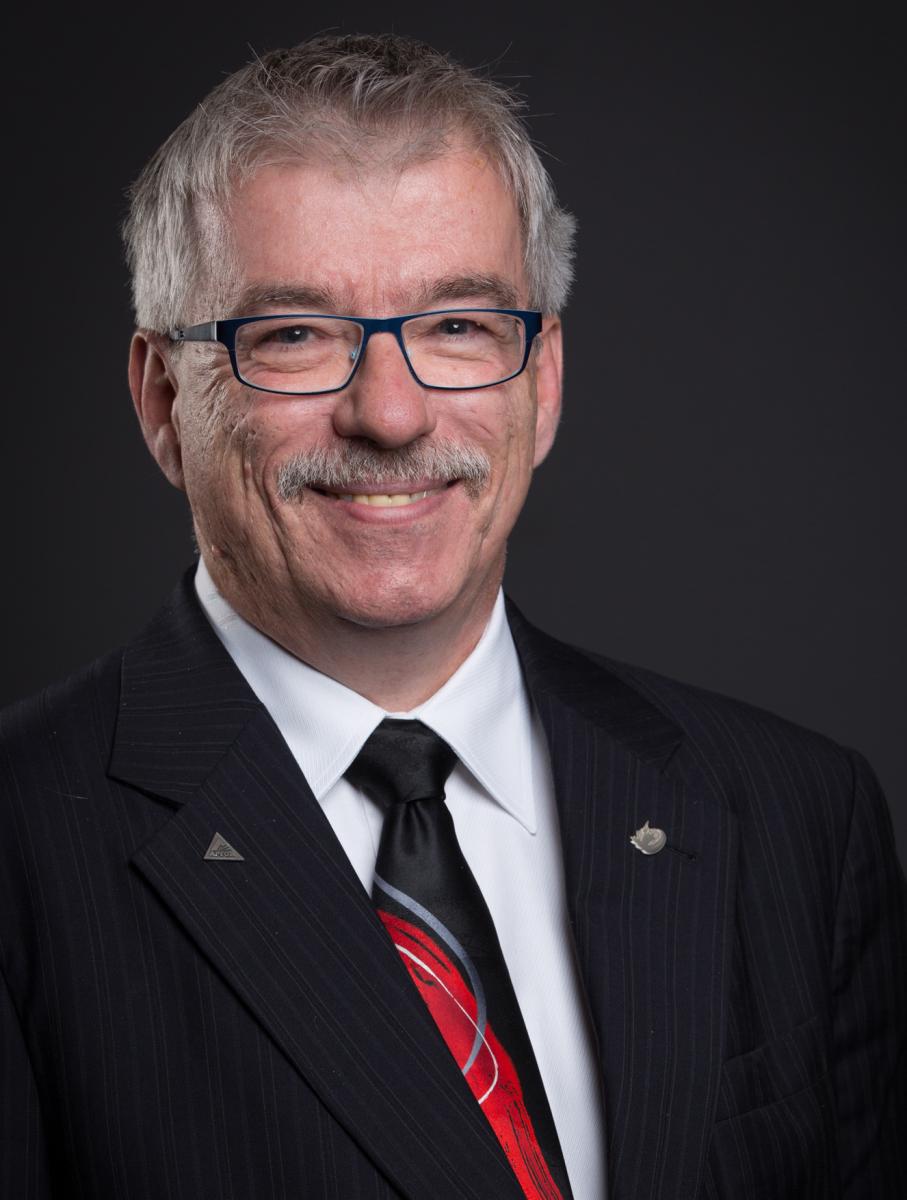
W. James Beckett, FEC, P.Eng.
Past-President (2013-2014)
Engineers Canada
October 2013
Discussing Professionalism and Ethics in the Engineering Profession
As part of our policy governance, Engineers Canada’s Board has the important role of providing strategic vision to the profession. In fact, our primary End is for Engineers Canada (to exist) in support of the constituent associations, to advance the engineering profession and its self-regulation in the public interest at a cost that is justified by the results.
To fulfil this role, we have introduced a Big Picture discussion to our meetings that includes thinking about broad, profession-wide issues that are directly related to our ends.
It is hard to watch the news and not realize that recent examples of failing infrastructure and unethical behaviour by professional engineers have put the public’s confidence in the engineering profession into question. So it was fitting that at our October Board meeting, we focused on End E-2 Public’s Confidence in the Profession. To read more about our Ends and Policy Governance, see the Board Policy Governance Manual.
Our regulatory bodies have been reporting a recent trend of increasing numbers of complaints related to ethical issues and professionalism. Quebec’s Charbonneau Commission has put the issue in the public eye and the issues it raised have had an impact on our reputation.
Engineers Canada and all of the constituent associations have not hesitated to openly discuss this issue. We have been proactive by developing programs and publications that aim to help engineers practise ethically and professionally. We must all adhere to a code of ethics. When our ethics are questionable, so is our status as a professional.
In addition, the Canadian Engineering Qualifications Board has tools for the constituent associations to help them proactively raise the profile of this issue with members, including a model guide on concepts of professionalism, a Guideline on the Code of Ethics, and a Good Character Guideline. The Canadian Framework for Licensure is also working on this issue with a code of ethics element, a standard of professional conduct element and recommendations on the assessment of the law and ethics requirement for licensure, and the good character and professionalism requirement for licensure.
But is that enough? Should the profession be more vigilant and impose more severe penalties? Our Board members identified several possible solutions to the issue including:
-
The engineering profession must continue to uphold good ethics and professionalism in all we do.
-
Individuals or groups found to have participated in illegal or unethical activities should be held accountable.
-
Teaching and enforcing ethics and professionalism is a duty that we must undertake at all levels, from mandatory components in accredited engineering programs, to requirements for licensure, to continuing education throughout an engineer’s career.
-
Fines should be higher for those found guilty so that engineering firms and individuals recognize the importance of ethics.
Despite our many efforts, breaches of trust, ethics, and poor conduct will continue. It is important that a discussion on ethics and professionalism continue too, within all of our associations. You, as members of the profession, are the best guardians of our professional ethics.
What are your thoughts on our suggested actions to improve ethics and professionalism? What should the regulators do? What can Engineers Canada do? I’d like to know what you think. Send your comments to feedback@engineerscanada.ca
